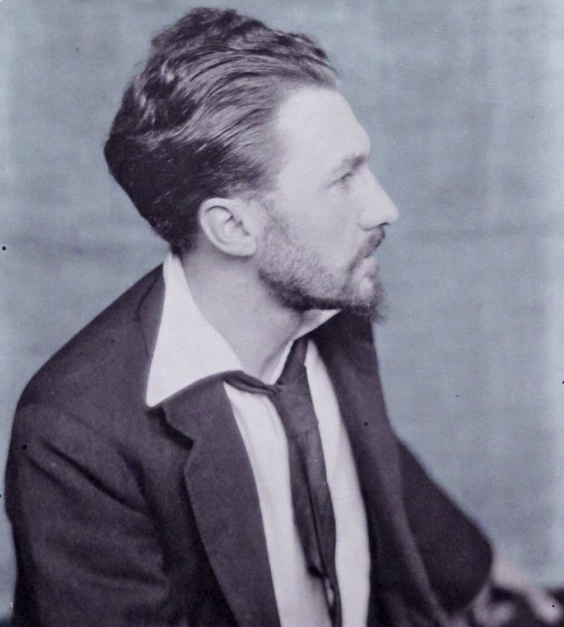
In this letter to H.L. Mencken, Erza Pound discusses helping to found The Little Review, a publication best known for serializing James Joyce’s Ulysses from 1918 to 1920. At the time of the letter’s writing, Mencken was editor of The Smart Set (referred to in the letter as “the S.S.”), a literary magazine notable for publishing two stories from James Joyce’s story collection Dubliners—Joyce’s first appearance in an American publication—and for debuting F. Scott Fitzgerald in 1919. The “Hatteras” of the letter is a pseudonym for Mencken.
London
Sunday 12 August 1917
Dear Mencken:
I sent a letter to Hatteras last week, in your care, asking if he had any stuff too wild for the S.S. I have been a bit slow getting The Little Review off the mark, but perhaps not so slow as would at first sight appear, as stuff has to leave here so infernally long before it gets into print in N.Y.
Apart from Yeats, I have a play by Lady Gregory, and one from Symons (not so valuable). Joyce has been in hospital ever since we started so he has been no use. But I have now got [Ford Madox] Hueffer’s best ms. for 1918 and a toppling story from [Wyndham] Lewis for Dec.
I wonder if you have any stuff of your own too unComstockian for your own readers. What about Wright?
I hope old Hatteras has impractical moments.
I suppose an exchange of ads at this stage of the game would be a pure present on your part. Still a statement that ‘the S.S. is the only magazine, American or otherwise, that ever lost 50,000 subscribers in attempting to give America better literature than she wanted’ might fetch a few of our rare readers (who on the other hand probably read you (tacitly and unadmittedly in the midst of Browning societies) already).
I suppose Benefield is written out, or that anything he does would fit you perfectly well?
Hope you enjoyed Eliot in our July number. That unitarian upbringing has not been wasted.
(How many of your polysyllabic authors write under their own names???? There can’t be so many paristocratic cognomens in Manhattan).
At any rate, if there is impractical stuff, I want it.
From: The Letters of Ezra Pound, 1907-1941. New York: Harcourt, Brace, 1950, pp. 169-170
FURTHER READING
Read Ezra Pound’s editorial and T.S. Eliot’s only published work of fiction, “Eeldrop and Applepex,” in the May 1917 issue of The Little Review, courtesy of the Brown University Library.
Browse the digital archives of The Smart Set, courtesy of the Princeton University Library.
At The Concord Review, read up on Ezra Pound’s treason conviction and 13-year imprisonment in a facility for the criminally insane.


